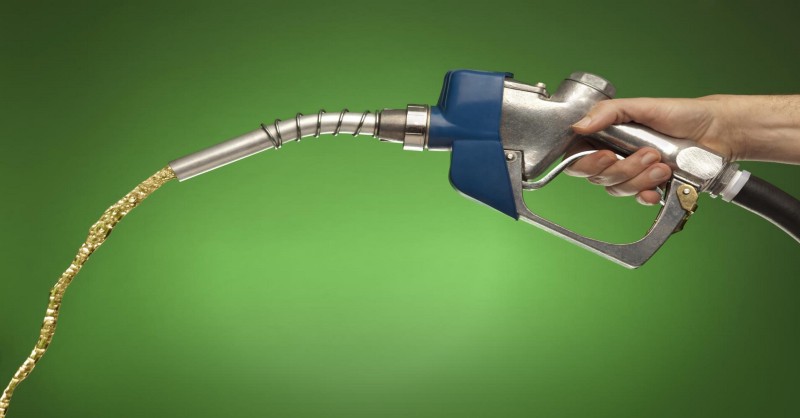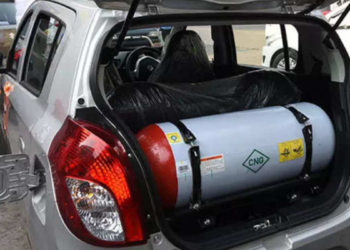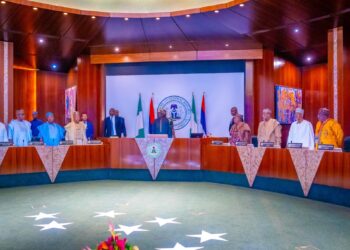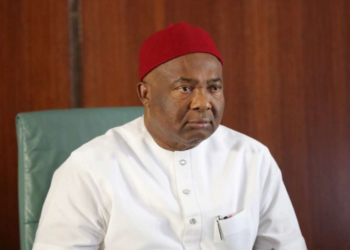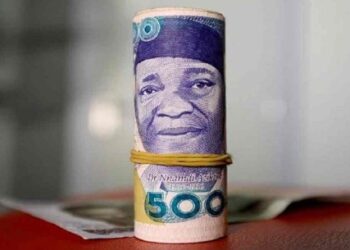Ibe Kachikwu Studios put out their latest movie yesterday starring Ibe Kachikwu, of course. The video is quite good and you can watch all 11 minutes of it below by clicking through to his Facebook page
Most of what he says is self-explanatory but one part is useful for what I want to write about — the swaps.
A Perfect World
In a perfect world, Nigeria produces 2 million barrels of crude per day (bpd). This is a necessary simplification. In that perfect world, each barrel of crude sells for $100. This is a good price. Nigeria has 3 refineries and in this perfect world, all of them are working fine.
Because the Nigerian government is omnipresent in everything in Nigeria, it decides that 20% of daily crude production will be set aside for local consumption. That is, 400,000bpd will be sent to those 3 refineries that are all working fine. Those refineries will then refine the crude oil into petrol, diesel, kerosene and any other type of fuel needed for local consumption. According to the EIA, one barrel of crude produced about 19 gallons of fuel in 2014. One gallon of petrol is roughly 4.5 litres. So the 400,000bpd set aside should give around 34 million litres of petrol (400,000 x 19 x 4.5) — enough to meet Nigeria’s daily demand.
In this perfect world, there is much happiness. The government still has 1.6m bpd to sell on the international market at $100 per barrel so it nets a cool $160m daily. With this, it can pay salaries, build roads and build up its reserves.
Because the government, through NNPC, also owns the refineries — and because it supplies the refineries with the crude to be refined — it can then determine the price at which petrol can be sold locally. As a ‘dividend of democracy’, it decides to sell petrol at N50/litre to Nigerians.
This vision is a compelling one and most people will take it if you offer it to them.
In Reality…
The trouble is that real life is quite messy. So everything perfect above is imperfect in real life. Because Nigeria’s neighbours don’t have crude oil, they are not able to sell petrol for N50. Neither are their governments able to subsidise petrol. Thus, petrol in those neighbouring countries sells for N120/litre. If you are a Nigerian living near the border with these countries, by merely crossing a line in the ground with petrol, you can more than double your money. This means that the 34 million litres coming out of your refineries daily will no longer be enough for the country.
NNPC is also not competent enough to extract all your crude oil from the ground. This means it has to partner with experts like Shell and Mobil in Joint Ventures and then share the crude. So maybe out of the 2 million bpd, only 1.2 million bpd belongs to Nigeria to sell. That is, after setting aside 400,000 bpd for the refineries, you earn $80m per day instead of $160m in the perfect world above.
It gets worse. Those refineries have fallen into such disrepair that they barely produce any petrol for the country. So you have to import from abroad. But you cannot get anyone to sell it to you for less than N50/litre because while you can afford to discount the cost of the crude you give to NNPC daily (those 400,000 bpd), people who are actually in the business of refining crude have to pay market prices and thus, charge market prices. So by the time you import it and bring it to Nigeria, it costs N90/litre. But you want to continue selling it to Nigerians for N50/litre — so you start paying a subsidy of N40 on every litre. If you have to import all the 34 million litres, this subsidy comes to roughly $7m per day (at official exchange rates of N199 to $1). Of course, this money comes out of the $80m you earn above.
A wise man once said that if you want more of something, subsidise it (if you want less of it, tax it). So the more you subsidise, the more the demand goes up from actual use and from those diverting it to neighbouring countries. Before you know what’s happening, daily consumption is now at 50 million litres meaning subsidy is costing you $10m per day out of your $80m earnings. This is the same money you use to pay for everything and as time goes on, it’s no longer enough. You have to add borrowings to even be able to pay salaries.
The Final Insult
When oil prices suddenly drop to $50/barrel, you’re finished. That $80m turns to $40m. Luckily for you, the cost of petrol that you import reduces as well so instead of N40/litre subsidy, you now pay N20 (they say that when crude prices go up, petrol prices go up like a rocket. But when crude prices come down, petrol prices come down like a feather. See here). Still, your $70m (post subsidy earnings) is now $35m and you are seriously sweating.
But wait! How about the 400,000 bpd of crude you set aside for local refining? This is where the opportunity cost comes in. It costs something to get that crude out of the ground. So even if you give it to NNPC for free, it is not really free. But that crude is worth something on the open market so if you don’t sell it, you are losing income. In this scenario, that is another $20m daily income you are losing.
But whether locally refined or not, Nigerians need fuel. So you are faced with a decision. Actually, you don’t really have a choice since your refineries are not working. You have to get that fuel from abroad. The issue is how to pay for it.
Swaps
Note I haven’t mentioned corruption. 90% of the time, NNPC doesn’t know whether it is coming or going so it hardly knows what to do with its crude. It can’t buy, it can’t sell. It’s just there as NNPC. Anyway, some sharp people come up with an idea — why don’t you give us your crude meant for local refining and we will give you petrol in return? On paper, it’s not a bad idea as you need to sell it anyway.
Since these guys are not charities, let’s assume that what they do is take the crude and sell it on the open market. They then take the proceeds and buy petrol with it. Before this, they have agreed with NNPC that for every barrel of crude they take, they will return 18 gallons of fuel. That 1 gallon difference (from the EIA calculation above) will then be their profit. Instead of 34 million litres/day, they deliver 32 million litres. Of course, this is not enough to meet local demand (real and fake) so other people (‘marketers’) bring in their petrol and you pay them a price to cover their costs plus a subsidy to enable them sell at N50 locally.
All this is now getting quite messy and one or two barrels are going missing here and there. You want to increase prices of petrol but Nigerians have come to take subsidised petrol as their right. Unlike in the perfect world, you didn’t really build roads or bridges when the going was good. A lot of the money was stolen so nobody trusts that you won’t steal the money again if they free up some money for you by agreeing to higher prices. Stalemate.
At least you still have your 1.2 million bpd, give or take the amount you are swapping for crude. But where you know that your village people have finally caught up with you is when militants blow up a major pipeline and your production drops by 400,000 bpd. Now, 30% of income has suddenly become 50% in terms of the 400,000 bpd you swap for petrol. Bearing in mind that for every barrel of crude you swap for petrol, you lose the actual dollars you can earn for it. Petrol is not the only thing they use dollars for so just thinking about it is stressful.
Please don’t make the mistake of thinking all of this is normal. Most of this is unique Nigerian madness. What, for example, is the point of an NNPC that does not possess even the competence to sell its own crude? It has to use traders, something unique among national oil companies across the world. But if it’s to make billions of dollars disappear now…
Real Numbers
All those numbers above were made up for the sake of simplification. But real numbers are available.
Since foreign reserves are not increasing, we can assume that CBN is selling all the dollars it gets at the moment. In March, CBN sold a total of $921,352,549 to the banks. In April, it sold a total of $669,405,241. In the first week of May, it sold $136,038,458. Last week, it sold $130,775,295.
Just looking at those numbers, you can see the trajectory — forex sold dropped by 27% from March to April. If CBN sells the same as last week for the next two weeks in May, total for the month would have dropped by 21% from April. Whatever you want to call that, it is not an improvement. Checking the foreign reserves page on the CBN’s website, we can also do a sense check of what is going on. At the end of March, foreign reserves stood at $27.864bn. By end of April it stood at $27.090bn, a drop of $774m. We can safely conclude that the drop in oil income is worse than it looks as CBN is clearly dipping into the reserves to meet forex demand.
Forcados — 280,000 bpd. Brass River —100,000 bpd. Okan —90,000 bpd. Qua Iboe —110,000 bpd. Bonny Light — 250,000 bpd. These are the pipelines that have been knocked out by vandals and accidents, making a total of 830,000 bpd drop in production i.e. current production is around 1.4 million bpd (some say its actually lower). Out of which Nigeria owns maybe half. Out of which it must take out some to swap for petrol which in turn means it cannot earn dollars for them. You get the gist.

Prayer Is The Key
If you know how to pray, I don’t think it will hurt to pray about these problems. The vandalism and damage are temporary since pipelines can be repaired. Although the way the oil market is set up these days, it is a dog eat dog situation. If you lose market share for 5 minutes, you might struggle to get it back as everyone in OPEC is currently pumping oil at record levels. Ironically, Nigeria is helping to raise prices with its reduced supply. But you know what they say about volunteering your head to break open a coconut…
Oil prices rose more than 2% to their highest since last November after the interruption to supplies from Nigeria and a forecast from Goldman Sachs that a dramatic cut in stockpiles would maintain prices at about $50 (£35) for the rest of the year.
Brent crude futures were up $1.23, or 2.5%, to trade at $49.05 a barrel at lunchtime in London on Monday, as investors bet that the ultra-low prices seen over the past two years were over.
The closure of a processing plant in Nigeria was the latest problem to hit the global supply of oil
And of course, once Nigerian crude comes back on the market, the increased supply will probably drop prices again.
Raising petrol prices helps the problem a bit. At least the subsidy cost is removed so the government can breathe even if for 5 minutes. But there is one more leg to the problem that needs a solution —supply of dollars to pay for petrol imports. As you can see, the CBN is selling all the dollars coming in and even dipping into the reserves. Still, it’s just not enough. The black market cannot handle the dollar demand for petrol imports without rates hitting the stratosphere. Reports say there are around 75 ships ‘laden’ with petrol outside Nigeria’s shores. They are waiting for the marketers who ordered them to find dollars to pay for the cargo.
As I’ve said previously, the Nigerian government has been passing itself off to Nigerians as a body capable of controlling things it clearly cannot control. That goose is now cooked. All the power of the Nigerian government comes from the price of oil. Beyond that, it cannot really do anything. And it cannot control the price of oil either.
Nigeria needs dollars. Any policy that makes it hard or impossible for investment to come into the country at this time is the equivalent of deliberately sabotaging the economy. There are no two ways about it.
I want to feel sorry for this government. Everything that can go wrong has gone wrong for them in the last 1 year. It’s a terrible time to be in charge of Nigeria. Key levers to make things better are outside of their control.
But you must do everything you can to help yourself. So when I think of the irrational currency policies of the last year, I set my face like flint.
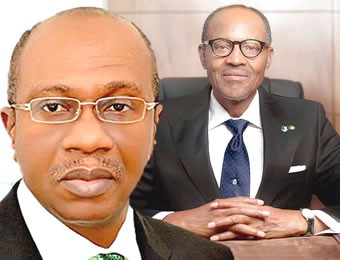
FF
Note: The numbers I used in examples above are NOT accurate numbers. I’ve made them up for simplification although some of them are close to the actual numbers. Reality is of course more complicated than I’ve made it out to be.
This article was obtained with permission from Feyi Fawehinmi. Follow Feyi on twitter @doubleeph

